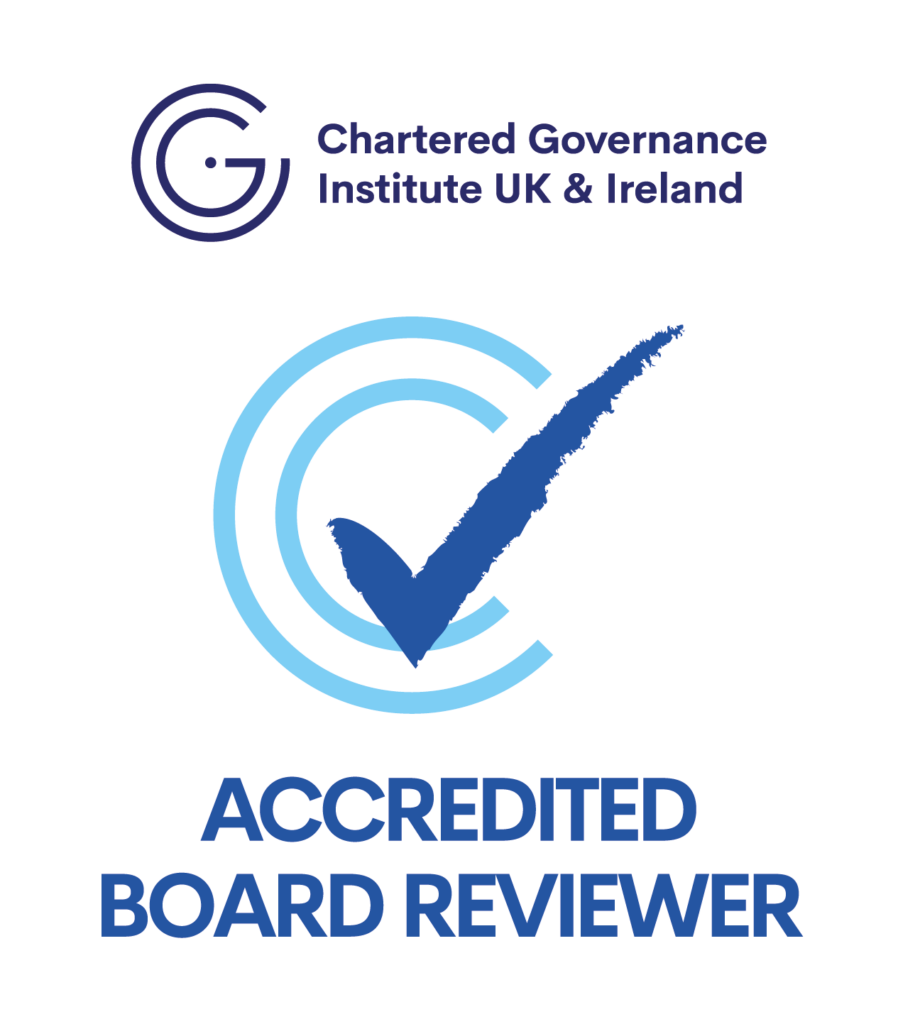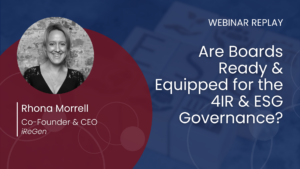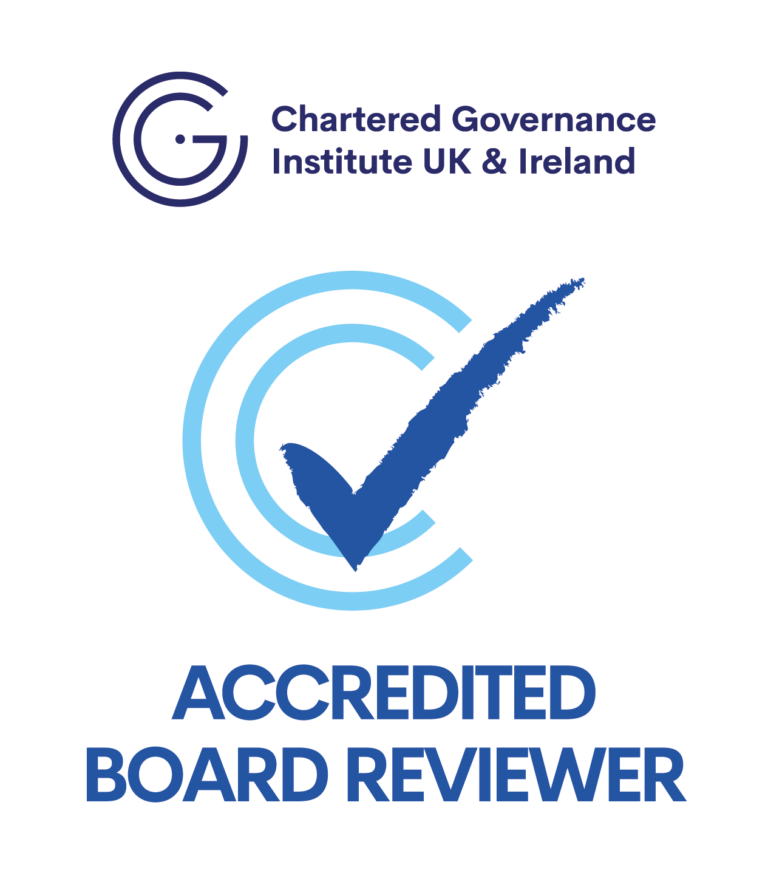Diversity, Equity, and Inclusion (DEI) has been under renewed scrutiny as major organisations pull back from once-public commitments. Yet for boards that understand DEI not as a trend, but as a driver of business resilience and performance, the opportunity is clear: governance, not HR, should lead the way.
Our latest article explores how boardrooms can embed DEI into their governance frameworks, not as a compliance exercise but as a strategic enabler. Drawing on insights from the recent Genius Boards digital event, we share real-world reflections and recommendations from governance experts and DEI advocates.
DEI Requires Governance—Not Just Good Intentions
Effective DEI cannot exist in a vacuum—it must be supported by strong governance. As Sharon Constançon, CEO of Genius Boards, shared during the discussion, governance provides the structure through which values are enacted and policies are upheld.
She recalled a £600 million business that collapsed due to a failure of governance. “It wasn’t a lack of vision,” she said. “It was a lack of discipline, oversight, and alignment. And DEI suffers in exactly the same way when it’s not supported by clear governance mechanisms.”
In the context of DEI, governance means embedding equity and inclusion into the policies, risk frameworks, and strategic priorities of the board, not treating it as a side initiative or employee-led programme.
“It wasn’t a lack of vision, it was a lack of discipline, oversight, and alignment. And DEI suffers in exactly the same way when it’s not supported by clear governance mechanisms.”Sharon Constançon, CEO of Genius Boards
What Leading Boards Are Doing Differently
While the FTSE has made strides in gender and ethnic diversity, many smaller companies lag behind. Peter Swabey, Policy and Research Director at the Chartered Governance Institute UK & Ireland, pointed to outdated board recruitment practices as a key issue.
Boards often default to looking for former CEOs or CFOs, which narrows the talent pool and reinforces sameness. “Nomination committees must look wider, deeper, and further ahead,” Peter said, “and challenge themselves on what skills and experiences are truly needed.”
. “Nomination committees must look wider, deeper, and further ahead, and challenge themselves on what skills and experiences are truly needed.”Peter Swabey, Policy and Research Director, CGIUKI
The IED Model: Inclusion and Equity Before Diversity
One of the core ideas explored during the webinar was the IED Model: Inclusion → Equity → Diversity. Genius Boards developed this model to reframe the way organisations approach DEI, from the top down.
Instead of chasing diversity metrics, boards should prioritise creating inclusive cultures and equitable systems. When inclusion and equity are embedded into how decisions are made, diversity becomes a natural and sustainable outcome, not a forced one.
You can explore the IED Model in more depth: Why Diversity is the Outcome and Not the Strategy.
Board Culture: Moving from Tokenism to Belonging
DEI is not just about who’s in the room—it’s about how people are treated once they’re there. Communications strategist Sandie Allimadi shared her experience with non-inclusive leadership that left diverse voices marginalised.
Sharon recalled a board evaluation for a financial services firm where diverse appointees were excluded from informal board dynamics. The lesson? Appointing someone diverse is not enough. Boards must be ready to listen, adapt, and include.
Conscious inclusivity, ongoing learning, and challenging unconscious bias are essential components of governance maturity.
Why Cognitive and Experiential Diversity Matter
Beyond demographics, diversity of thought and experience are increasingly critical to board performance. Michael Cole-Fontayn, Chairman of the Chartered Institute for Securities & Investment, emphasised the role of the corporate secretariat in holding boards accountable to inclusion principles.
“Boards should spend more time together outside formal meetings to build the kind of trust that encourages challenge,” he noted. Without diversity of mindset and professional background, strategic blind spots can go unnoticed.
“Boards should spend more time together outside formal meetings to build the kind of trust that encourages challenge.”Michael Cole-Fontayn, Chairman of the Chartered Institute for Securities & Investment
DEI as a Strategic Risk and Opportunity
Sharon and Peter also addressed the growing importance of risk committees in DEI oversight. Too often, DEI is left out of risk registers, even though failure to act can expose businesses to reputational damage, investor scrutiny, and employee disengagement.
Boards should reframe DEI as both a risk and a strategic opportunity that can enhance long-term sustainability, innovation, and stakeholder trust.
Developing Talent from Within
Sandie encouraged boards to plant seeds of ambition, ensuring emerging talent sees board service as attainable. This starts with representation but should also include equitable access to training, mentoring, and leadership visibility.
Michael added that mentorship and professional networks are key in helping underrepresented leaders access board opportunities. “We have to lift as we climb,” he said.
Featured Webinar Replay
Boards are being called to lead the way on DEI. Catch up on this must-watch webinar and explore how the IED Model helps boards embed inclusion, equity, and diversity into long-term governance strategy.
The Boardroom is the Change Agent
This conversation made one thing clear: DEI is not the responsibility of HR alone—it’s a board-level issue. Governance is what makes DEI sustainable, measurable, and meaningful. Boards that embed DEI into their strategy, culture, and risk oversight won’t just comply—they’ll compete, attract top talent, and lead with integrity.
Looking to embed DEI into your board’s strategy?

Genius Boards’ Commitment to Smarter Governance
At Genius Boards, we help leaders integrate governance-first strategies for DEI, ESG, and risk maturity. Would you like to explore how your board can future-proof its leadership approach? Contact Genius Boards for expert advisory and board governance solutions.























